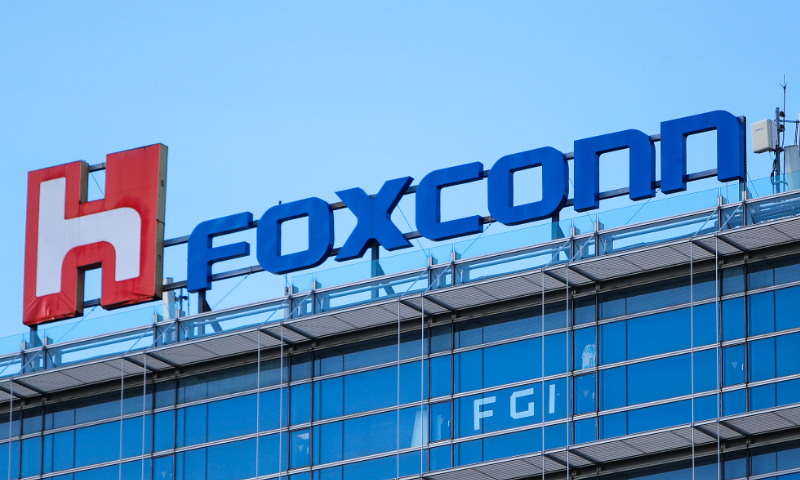China targets Foxconn
The Taiwanese electronics manufacturing giant is under investigation by Beijing for tax issues and land consumption. The real reason, however, would be the company founder Terry Gou's candidature for the presidential elections in Taipei in January next year.
Beijing (AsiaNews/Agencies) - In several Chinese cities the authorities are inspecting the factories of Foxconn - a Taiwanese multinational which assembles iPhones in its factories in China and is essential for the production of the products of the American giant Apple - to verify compliance with the payment of taxes and Chinese land use, according to a report by the Chinese newspaper Global Times.
The move by the Beijing authorities, however, would be linked to the founder of Foxconn, Terry Gou who is running in Taiwan's presidential elections in January next year. Shares of Foxconn affiliate Foxconn Industrial Internet, which is listed on the Shanghai Stock Exchange, fell 10% on Monday, the lowest in five months.
The tax inspection began with factories in Guangdong and Jiangsu province, while China's natural resources regulator launched an investigation into improper land use at the company's factories in Henan and Hubei province.
According to Reuters newsagency, two sources close to Foxconn reported that there was a political motivation behind the inspection by the authorities: Terry Gou in fact ran for president as an independent, collecting over 300 thousand signatures in support in less than a month which gave him exceeded the threshold of requirements to be able to present themselves.
Although Gou is a pro-China figure, his campaign does not have Beijing's approval. Analysts believe his presence could split the pro-China camp and dilute votes, so the pro-independent Democratic Progressive Party could benefit.
The Hong Kong-based pro-Beijing newspaper Ta Kung Pao has hinted that Gou will have no chance of being elected, rather, he will become an "helper" of the Democratic Progressive Party and Beijing will not remain indifferent.
Terry Gou's flirtation with politics has been going on for at least four years. His resignation from the position of president of Foxconn dates back to then.
Subsequently he participated in the presidential primary elections of the pro-Chinese Kuomintang, but was not nominated, but his company has remained a sponsor of the Kuomintang for many years.
As an influential businessman with colossal investments in China, Gou met several times with Chinese leader Xi Jinping, who called him an "old friend."
During the election campaign, the tycoon said that in the event of election, the first thing he would like to do would be to sign a peace agreement between Taiwan and Beijing.
In 2023, Gou left the company's board of directors before announcing the start of the campaign, although he continues to have great influence on the company.
Polls currently favor the candidate of the pro-independent Democratic Progressive Party in power, Lai Ching-te, who has opened up dialogue with Beijing.
Yet the Chinese government considers him a "stubborn Taiwan independence element" and Xi refuses to speak to him.
Last Sunday Lai spoke on the "Foxconn case": according to him, Taiwanese companies have made a great contribution to the Chinese economy in the last 30 years and it is not desirable that China forces Taiwanese businessmen to take a stand during the elections.
In fact, there are precedents for Beijing authorities to take measures against Taiwanese companies at sensitive times. For example, some companies had been fined or sanctioned for allegedly supporting the Democratic Progressive Party or other pro-independence organizations before the elections.
Meanwhile, the Taiwanese government continues to believe that Beijing is using military force to put pressure on specific social groups as a measure to change voters' political ideas and elect candidates "favored" by Beijing.
Finally, with the intensification of tensions between the United States and China, many foreign capitals, including those investing in Foxconn, are transferring their liquidity to other Southeast Asian countries and to India to reduce risks.







.png)










